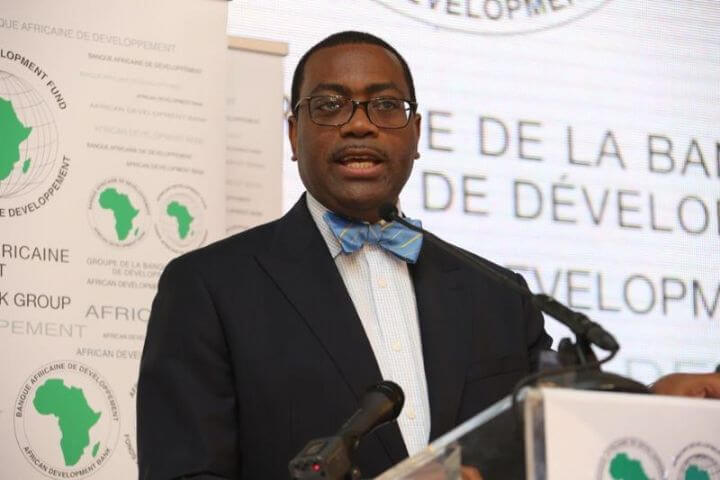Economic Diversification Key To Solving Africa’s Difficulties – Adesina
Akinwumi Adesina, President of the African Development Bank, has called on African governments to encourage a shift toward labour-intensive industries, especially in rural areas.
Speaking to an audience of policy-makers and members of the diplomatic corps in Côte d’Ivoire on Friday, Adesina said if African nations successfully diversify their economies it will lead to the creation of jobs, reduce poverty and promote inclusive economic growth.
Advertisement
According to him, economic diversification via industrialization with tangible investment in human capital will enable the continent’s rapidly growing youth population to successfully transition to productive technology-based sectors.
The AFDB president said infrastructure projects were among the most profitable investments any society can make as they “significantly contribute to, propel, and sustain a country’s economic growth”.
“Infrastructure, when well-managed, provides the financial resources to do everything else,” he said.
“Agriculture must be at the forefront of Africa’s industrialization,” he added noting that integrated power and adequate transport infrastructure would facilitate economic integration, support agricultural value chain development and economies of scale which drive industrialization.
Advertisement
Adesina also highlighted the relatively unknown win-win situation that Africa’s industrialization can generate within the developed world, citing data from the Bank’s 2018 African Economic Outlook launched in Abidjan, Côte d’Ivoire, on Wednesday, which notes that “increasing the share of manufacturing in GDP in Africa (and other Less Developing Countries) could boost investment in the G20 by about US $485 billion and household consumption by about US $1.4 trillion.”
He announced that the Bank would organise the Africa Investment Forum on November 7-8, 2018 in Johannesburg, South Africa, to mobilise funds for infrastructure development, to bridge an estimated funding gap of $130-$170 billion a year, up from previous estimates of US $100 billion per year.
In his remarks, Célestin Monga, the Bank’s Chief Economist and Vice-President for Economic Governance and Knowledge Management, said the African Economic Outlook has become the flagship report for the African Development Bank, providing data and reference material on Africa’s development that are of interest to researchers, investors, civil society organizations, development partners and the media.



